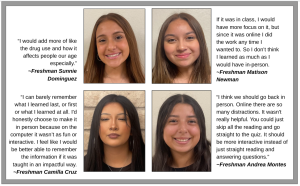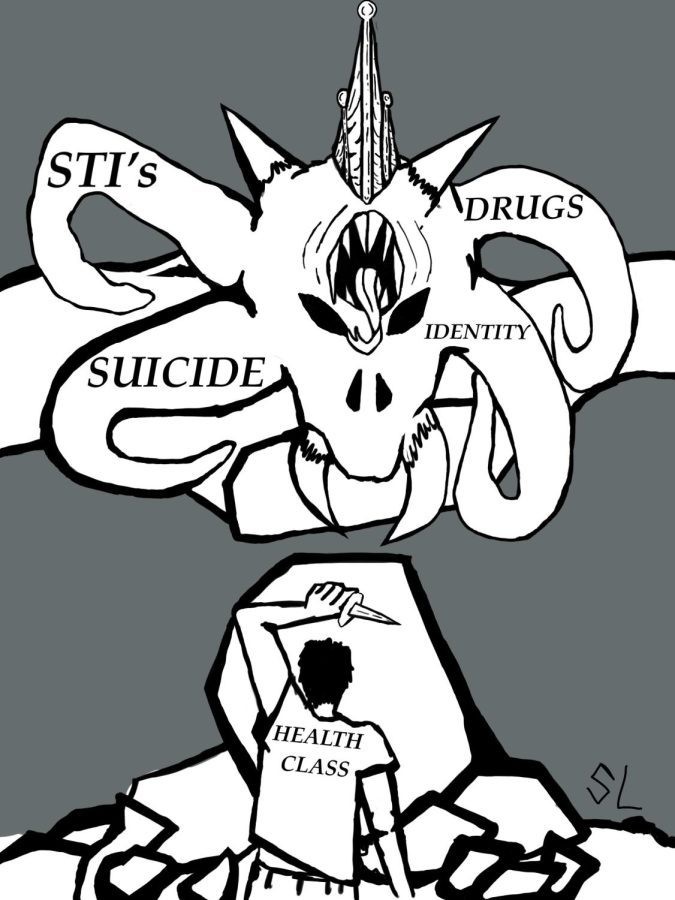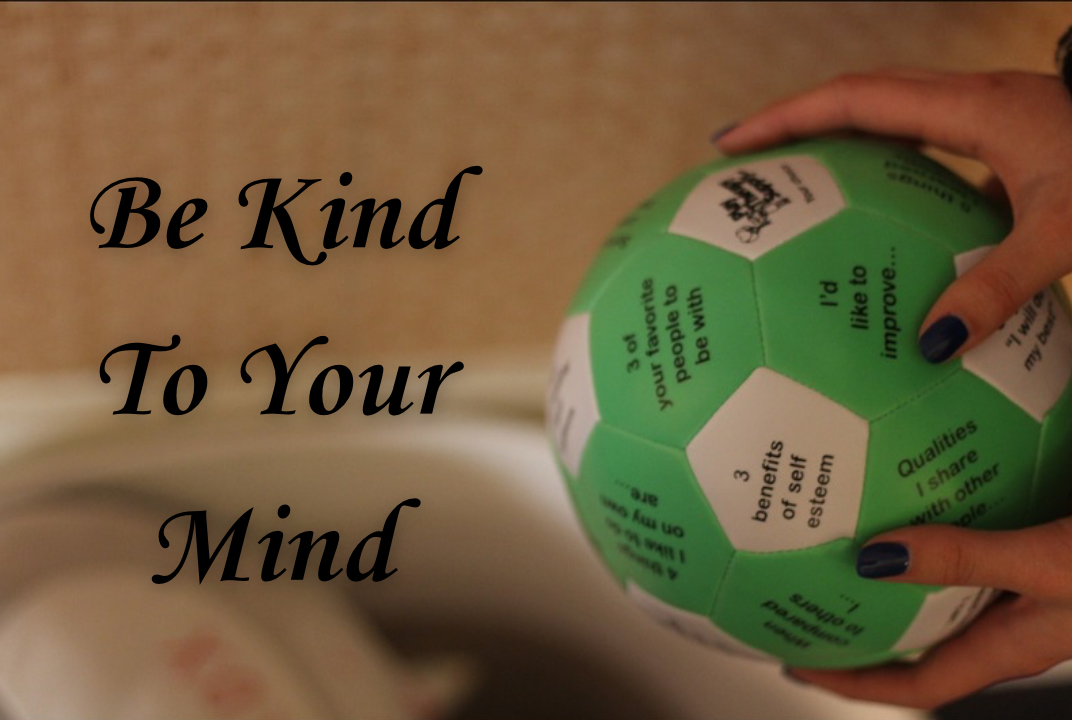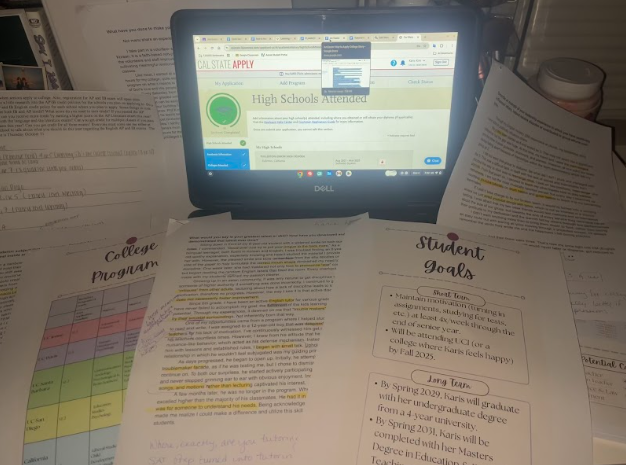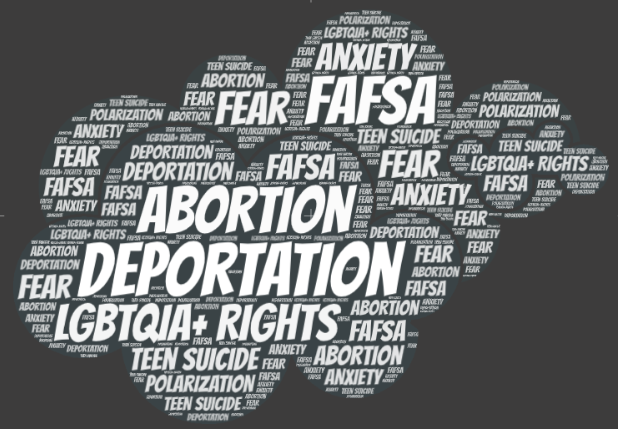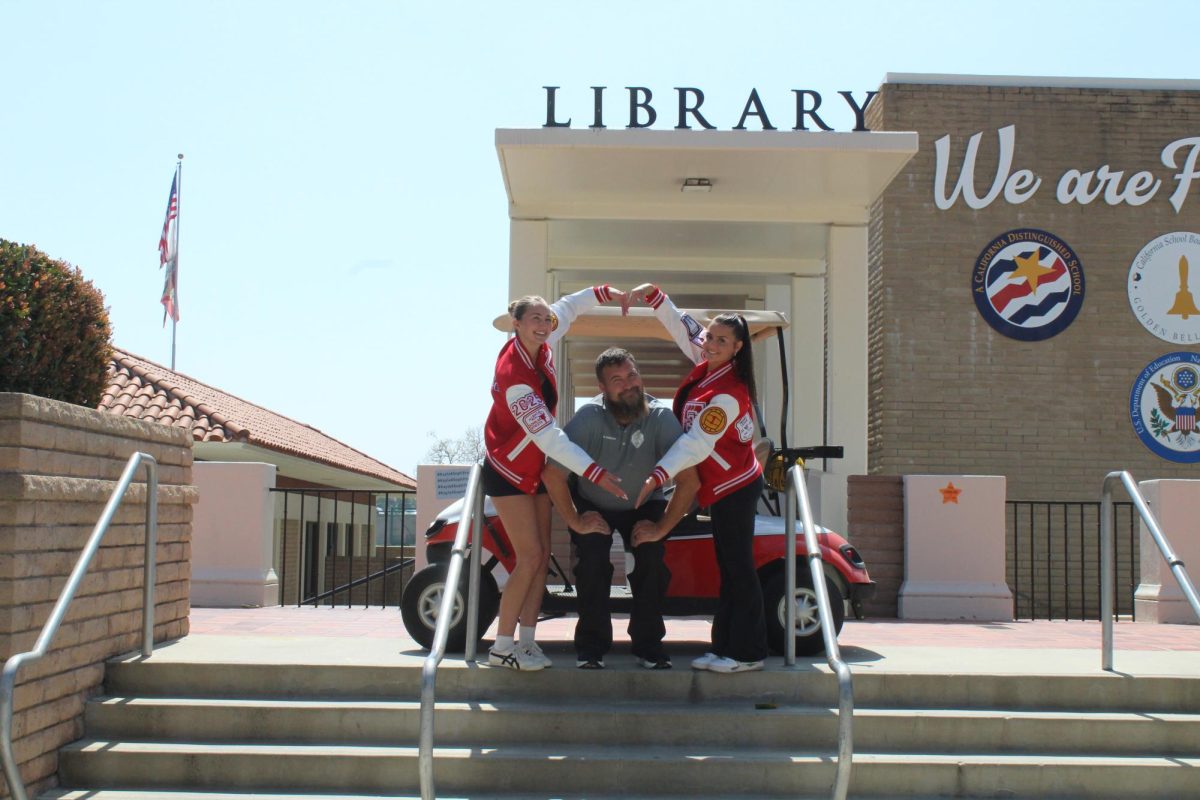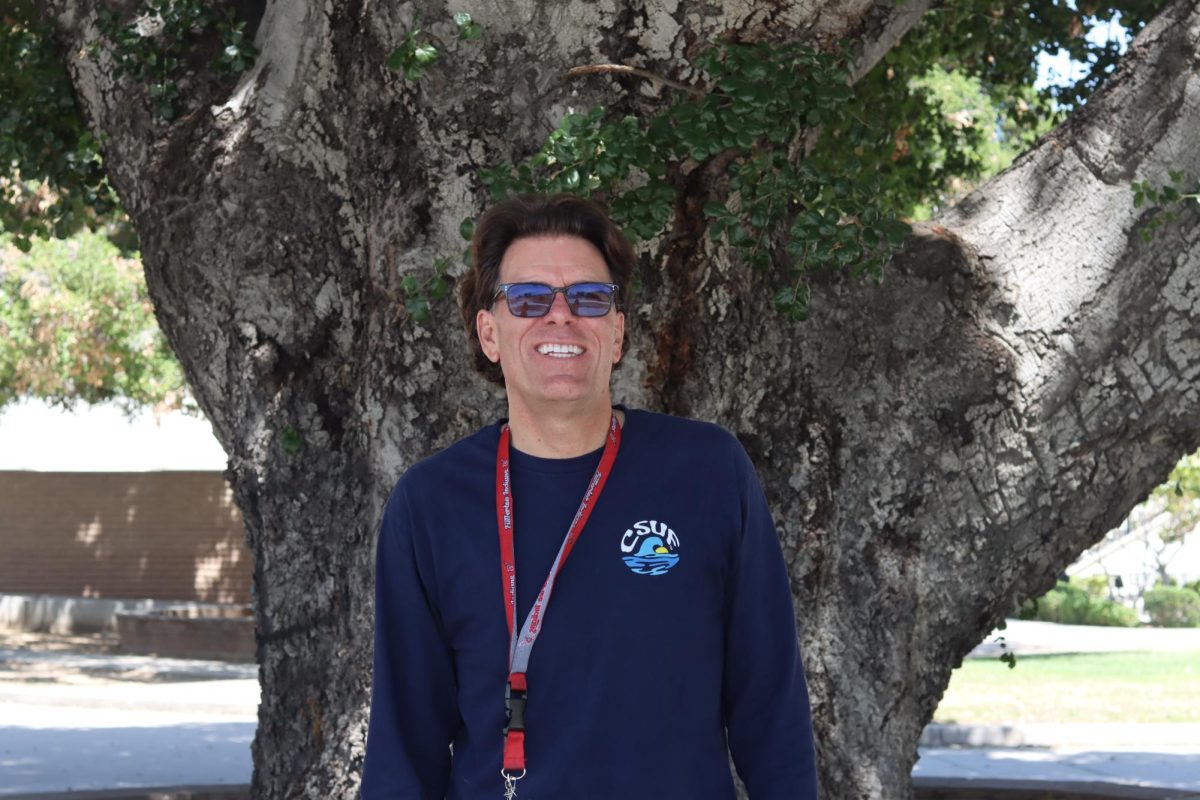One in seven high school students regularly vape, according to government data. That’s about five vapers in every FUHS classroom.
About 7% of students regularly abuse opioids, ranging from OxyContin to Vicodin. That’s about 2.5 pill users in every FUHS classroom. These teens also risk overdose and death if the pills have been cut with Fentanyl.
We don’t know how accurately these national statistics match up to Fullerton Union High School, but based on observation and odors, the Tribe Tribune staff would not be surprised if the numbers were higher.
To address these growing problems, the school district requires students to take an online two-week health class containing five units: Mental Health, Nutrition, Drugs, Disease and Sexual Health. Students work from home, watching videos and clicking through slides to earn credit. The work-from-home format gives students privacy while learning about sensitive topics; no one has to suffer through freshman giggles when the instructor mentions the word condom. It also allows busy students to take six or seven classes during the regular school year instead of carving out space for a separate health class.
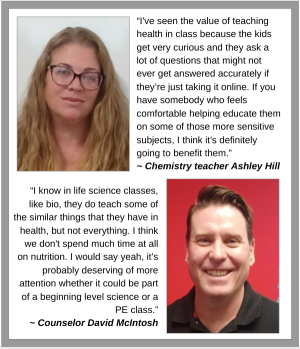
Although we appreciate privacy and convenience, mental health and drug use are the most important issues teens face. Therefore the school district should change the current online health course into an in-person semester-long or year-long class. We interviewed four FUHS staff members who have taught in-person health classes: Ed DeAvila, Ashley Hill, David McIntosh and Richard Salazar all said that an in-person health class would be a better help to students.
Parents who worry that their children will be embarrassed by the health class’s content were that content delivered in person need to understand that misinformation is far more damaging than a moment of awkwardness. Besides, health instructors have strategies to reduce awkwardness. When DeAvila taught the health class in person, he asked students to write questions on index cards so he could control the class discussion and privately respond to questions when needed. DeAvila said he could clear up misconceptions quickly with an in-person class. According to the CDC, 50% of students under age 18 have had sexual intercourse, so students are in need of facts. Parents, however, are still able to request their teens opt out of the Sexual Health Unit.
Learning about drug addiction does not make teens do drugs. Learning about suicide prevention does not make teens suicidal. Learning about sex does not make teens have sex.
Simple warnings are no longer effective. For example, the annual Red Ribbon campaign has been reduced to the week when students can score a free Slurpee at 7-Eleven if they wear a wristband. Although the effort is nice, a red bracelet is not enough. The impact that online lessons have on immature students just entering high school barely scratches the surface of many health related issues. We need to find a way to shape the course so that it will reach and engage the target audience.
The Tribe Tribune interviewed six freshmen who took the current health class during the summer. We were surprised that students agreed that an in-person class would be better. If freshmen say that physically going to school is better, that’s saying something. Most students confessed to simply skipping through the lessons and guessing the simple multiple-choice answers.
Tribe Tribune staffers Kitty Martinez and Syd Rosas attended an opioid panel on Jan. 26 in the Little Theater where they viewed a film called Dead on Arrival. The video showed parents opening up about their heartbreaking experiences as parents whose kids died from fentanyl overdose. The audience was taught how to properly use Narcan in case of an opioid overdose, how to recognize an overdose, how to perform CPR, and how to talk to officials when dialing 911. The stories shared at the workshop highlighted the enormity of the growing drug problem among teens.
To show students the real danger of drug use, the school should consider showing the documentary Dead on Arrival to all students—either in a health class or during Student Support period. If educators think some scenes are too upsetting, then they should work with OC health care providers to create a video that’s powerful and appropriate for high school students. The current freshman biology class can’t—and shouldn’t—be responsible for covering personal health, and students need more than what’s currently crammed into a measly two-week summer course. Students learn when they engage with, interact with, discuss, integrate, and understand material. Clicking isn’t enough.
Although there are no current plans to make any significant changes to the health course according to the district, the Tribe Tribune editorial board believes that more attention must be paid and more awareness needs to be raised. We need a class where students won’t be belittled or feel afraid to learn about what matters most. A better health class could save lives.The time for judging people is over; the time to teach people and treat people is now.
THOUGHT SHOTS: HEALTH CLASS
